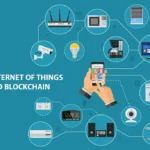In the ever-evolving landscape of healthcare, telemedicine has emerged as a transformative force, bringing medical expertise to the fingertips of patients worldwide. The convergence of technology and healthcare has paved the way for AI (Artificial Intelligence) to play a pivotal role in revolutionizing remote healthcare. As the world grapples with the challenges of access to healthcare and the need for more efficient and cost-effective solutions, AI in telemedicine stands out as a beacon of hope, promising to bridge gaps, enhance patient care, and improve medical outcomes.
The Rise of Telemedicine
Telemedicine, the practice of delivering medical services remotely, has witnessed exponential growth in recent years, especially accelerated by the COVID-19 pandemic. It offers numerous advantages, including improved access to healthcare in underserved areas, reduced healthcare costs, and increased convenience for patients and providers alike. However, the true potential of telemedicine lies in its synergy with AI.
AI-Powered Diagnostic and Decision Support
One of the most promising applications of AI in telemedicine is its ability to assist healthcare providers in diagnosing and treating patients more accurately and efficiently. AI algorithms, when fed with medical data, can analyse vast datasets, detect patterns, and identify anomalies that may elude human clinicians. This capability is particularly valuable in areas where timely diagnosis is crucial, such as radiology and pathology.
For instance, AI-driven image recognition software can rapidly analyse medical images, like X-rays, MRIs, and CT scans, to identify abnormalities and provide preliminary diagnoses. By doing so, AI helps reduce the time patients spend waiting for results and enables healthcare providers to make faster, more informed decisions, ultimately improving patient outcomes.
Personalized Treatment Plans
Another ground-breaking aspect of AI in telemedicine is its capacity to generate personalized treatment plans. By considering a patient’s medical history, genetic information, and real-time data from wearable devices, AI algorithms can recommend tailored treatment strategies. This level of personalization can greatly enhance the effectiveness of treatment and minimize adverse effects, leading to better patient satisfaction and health outcomes.
Remote Monitoring and Chronic Disease Management
AI-powered remote monitoring systems are transforming the management of chronic diseases. Patients with conditions like diabetes, heart disease, or respiratory ailments can benefit from continuous monitoring of vital signs and symptoms. AI algorithms can analyse this data in real-time, alerting healthcare providers to any concerning trends or anomalies. This proactive approach allows for early intervention and prevents complications, reducing the need for frequent hospital visits.
Chatbots and Virtual Health Assistants
AI-driven chatbots and virtual health assistants have become integral parts of telemedicine platforms. These AI-powered entities can interact with patients, answer questions, schedule appointments, and even provide medication reminders. They not only enhance patient engagement but also streamline administrative tasks for healthcare providers, enabling them to focus on delivering care.
Overcoming Language Barriers
AI-driven translation services have the potential to bridge language barriers in telemedicine. Patients and healthcare providers from diverse linguistic backgrounds can communicate effectively, ensuring that essential medical information is accurately conveyed and understood.
Challenges and Ethical Considerations
While the potential of AI in telemedicine is immense, it is not without its challenges. Privacy and security concerns, data accuracy, and the risk of bias in AI algorithms are all issues that must be addressed. Moreover, the ethical implications of AI-driven decision-making in healthcare raise important questions about accountability and transparency.
AI in telemedicine is a game-changer, revolutionizing remote healthcare by enhancing diagnostics, personalizing treatment, and improving patient management. As technology continues to advance and our understanding of AI deepens, the synergy between AI and telemedicine holds the promise of transforming healthcare delivery in ways we could only dream of a few years ago. While challenges remain, the potential benefits are too significant to ignore.
In a world where healthcare accessibility and quality are paramount, AI in telemedicine is shaping up to be a beacon of hope for a healthier future.
















Leave a comment